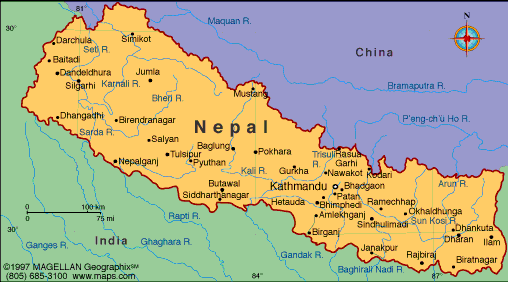
According to a poll by Kathmandu (Nepal) based polling body Interdisciplinary Analysts, 71% of Nepalis prefer Nepal being a Hindu country and in a first ever, Indian Prime Minister Narendra Modi scored 68 approval rating on a scale of 0-100. He outranked the highest rated Nepalese politician, President of Nepal Dr Ram Baran Yadav. The survey was conducted across 3000 respondents drawn from 44 randomly selected sample districts.
Reflective of the faith of Nepali populace in leadership of the yore King Birendra scored a high rating of 87 followed by King Prithvi Narayan Shah at 86. With top two leaders occupying the apex of leadership ratings hailing from Monarchy, it is evident that Monarchy is still not viewed as an all-black affair in the contemporary lore of Nepal. The abolition of Monarchy and adoption of a secular constitution in 2008 was noted by several analysts to be reflective of wider public mood and the aspirations of common Nepalese. Similarly a slightly antagonistic stance towards India was considered to be but natural for the Nepalese polity. Informed by such narrative India built a foreign policy thrust that seemed to be reactive and defensive about the umbilical linkages between two countries. For example Indian Prime Minister’s office paid little heed to the Himalayan neighbour leave alone planning a visit to it.
India’s new Prime Minister has been pro-active and sagacious about courting Nepal and its people. Importantly enough Government of India has woken up to a new stage of creative and growth oriented diplomacy predicated on co-operation in the fields of economy, technology, infrastructure and development. The results are reflected well in the survey figures that peg the Indian Prime Minister Modi a peg or two above the national politicians of Nepal, it is unprecedented in the history and definitely an opportunity that should be utilized by the citizens of India and Nepal to launch forth a new era of symbiotic evolution.
Source : Cvoter India





